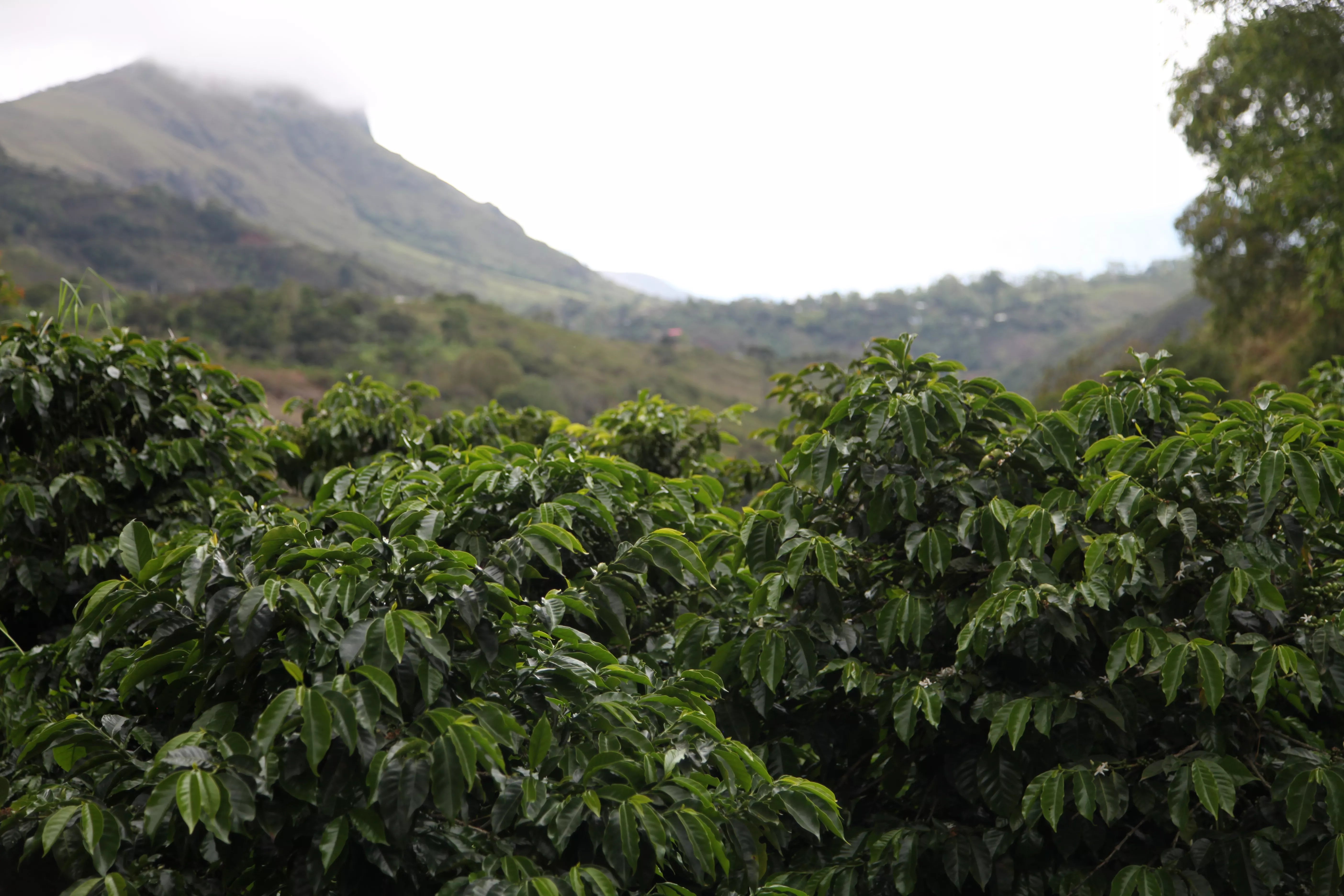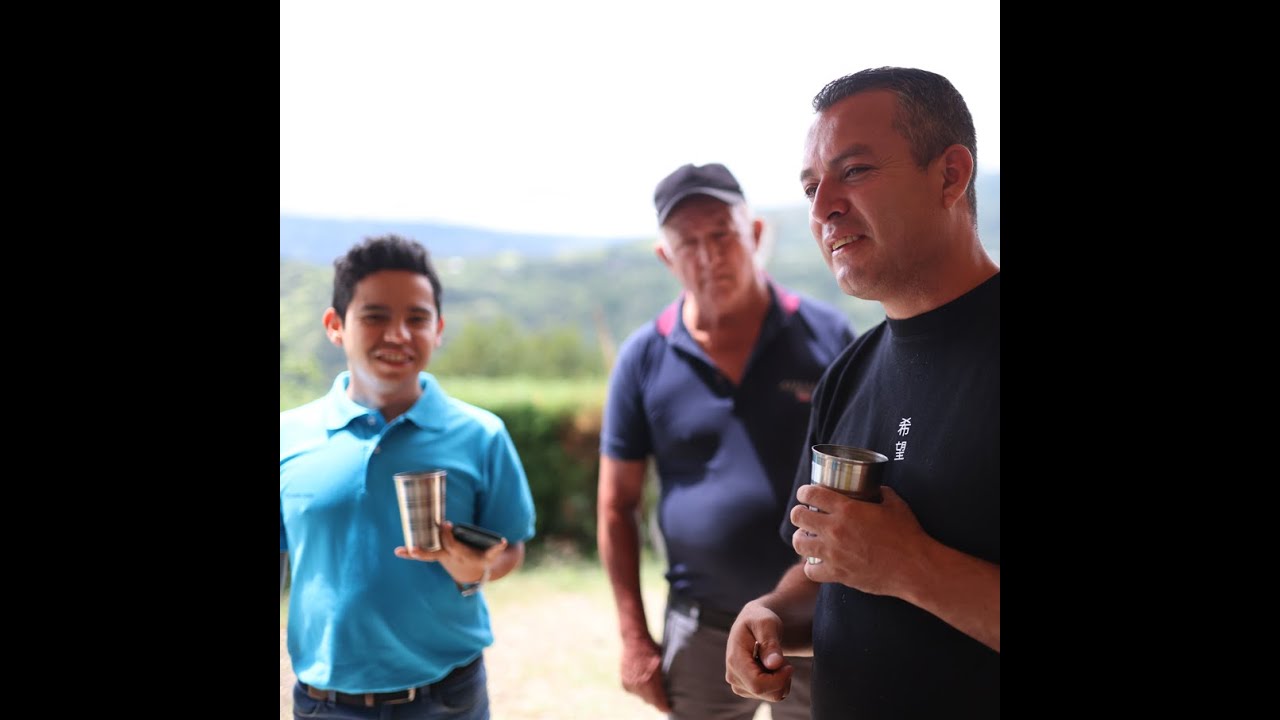


Huver Castillo - Colombia Geisha
Our first year working with Huver, his coffee are meticulously processed with vibrant acidity and juicy profiles. This Geisha is sweet with a juicy profile and malic acidity.
200G
Huver Castillo - Colombia Geisha
September Coffee Roastery
119 Iber Road
Unit 9
Ottawa ON K2S 1E7
Canada
- Variety: Geisha
- Country: Colombia
- Region: Nariño
- Process: Washed
- Altitude: 1800 MASL
- Harvest: Spring 2024
- Producer: Huver Castillo
- Farm: Finca La Golondrina
- Roast Level: Light
 In the cup
In the cup
We get a sweet and juicy geisha that reminds us of apple cider and grape juice. In the cup we get florals like jasmine and a mouthwatering malic acidity.
 Funky
Funky
 Experimental
Experimental
 About The Producer
About The Producer
Huver represents an organization of producers from Nariño - Colombia. He have associates with producers from Buesaco, Tablon de Gomez, Samaniego, San Jose de Alban. Huver grows many varieties including geisha and Bourbon, in all processes. Huver Castillo got into specialty coffee production as a crisis response. The second-generation farmer recognized his family’s work was becoming unsustainable as global coffee prices cratered in 2014. “It was then that we began to incorporate protocols into post-harvest handling that would allow us to improve the organoleptic characteristics of our coffee,” he says. “Perseverance and discipline were our watchwords.” His family and farm went through years of trial and error before their first exportable harvest of specialty quality coffee in 2018. That year’s success led them down a path of further experimentation with processing… and what a wild, winding path it has turned out to be!
 Processing
Processing
From Huver: The cherries are hand-picked selectively, ensuring that only the ripe, deep red fruits are chosen. This careful process is crucial to guarantee a high-quality cup of coffee. Once harvested, the coffee cherries are taken to the pulper, where the outer skin and part of the pulp are removed. The pulped coffee is placed in fermentation tanks, where they remain for a period ranging from 12 to 24 hours, depending on climatic conditions. Fermentation is a critical step that helps break down sugars and remove the mucilage covering the beans. After fermentation, the beans are thoroughly washed with clean water to remove any remaining mucilage. This step ensures that the beans are completely clean and ready for drying. The coffee beans are sun-dried on patios or raised beds. During this process, the beans are regularly turned to ensure even drying. Drying can take between 7 to 14 days until the beans reach an optimal moisture level of 10-12%. Once dried, the beans are stored in a cool, dry place, allowing them to rest for several weeks. This resting period is essential for stabilizing moisture and developing the complex flavours of Geisha coffee.
 Variety
Variety
This variety was originally collected from coffee forests in Ethiopia in the 1930s. From there, it was sent to the Lyamungu research station in Tanzania, and then brought to Centro Agronómico Tropical de Investigación y Enseñanza (CATIE) in Central America in the 1953, where it was logged as accession T2722. It was distributed throughout Panama via CATIE in the 1960s after it had been recognized for tolerance to coffee leaf rust. However, the plant's branches were brittle and not favored by farmers so it was not widely planted. The coffee came to prominence in 2005 when the Peterson family of Boquete, Panama, entered it into the "Best of Panama" competition and auction. It received exceptionally high marks and broke the then-record for green coffee auction prices, selling for over $20/pound.There is significant confusion about Geisha because there are multiple genetically distinct plant types that have been referred to as Geisha, many of which share similar geographic origins in Ethiopia. Recent genetic diversity analyses conducted by World Coffee Research confirm that Panamanian Geisha descendent from T2722 is distinct and uniform. It is associated with extremely high cup quality when the plants are managed well at high altitude, and is known for its delicate floral, jasmine, and peach-like aromas.
